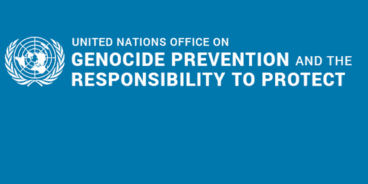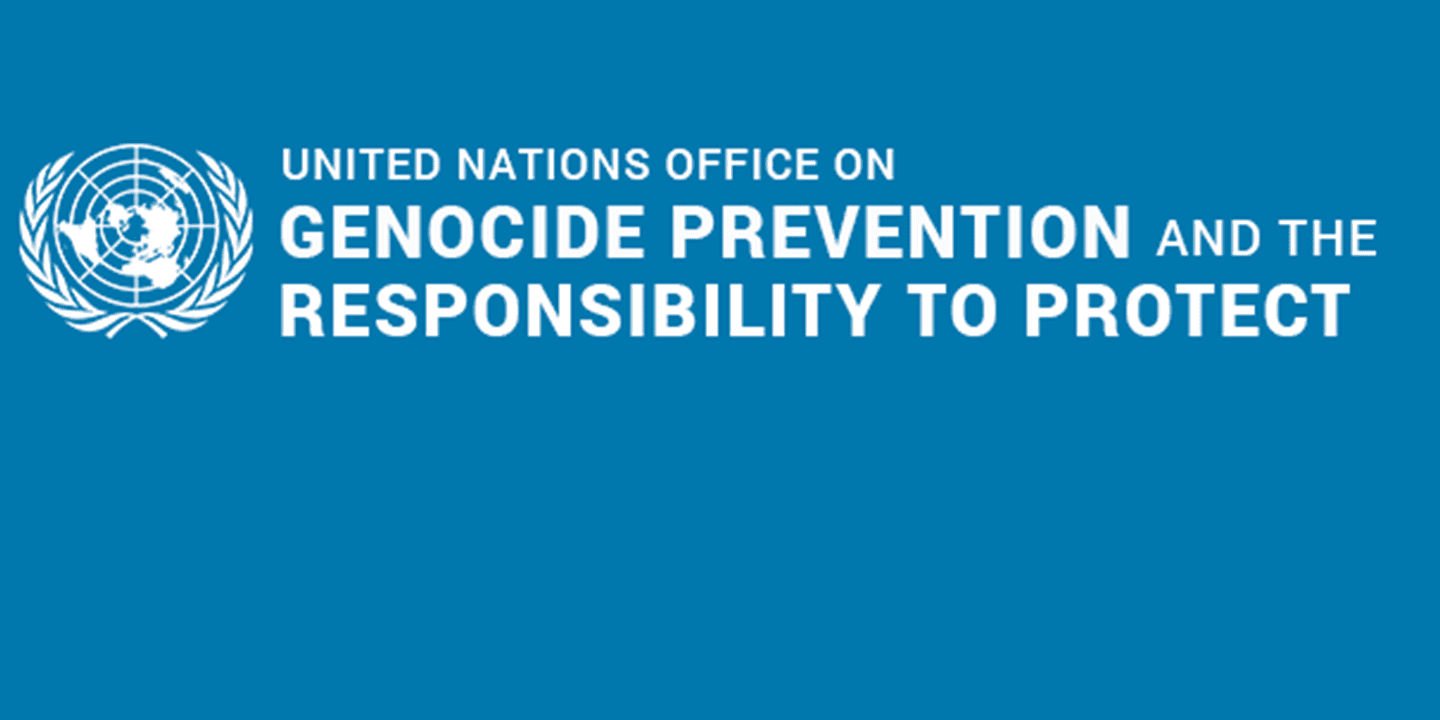

Statement by Ms. Alice Wairimu Nderitu, Special Adviser on the Prevention of Genocide, on the adoption by the General Assembly of Resolution on the International Day of Reflection and Commemoration of the 1995 Genocide in Srebrenica
The United Nations Under-Secretary-General and Special Adviser on the Prevention of Genocide, Alice Wairimu Nderitu, welcomes the adoption today of Resolution A/78/L.67 by the General Assembly establishing an International Day of Reflection and Commemoration of the 1995 Genocide in Srebrenica, which in her view will be instrumental in honouring the victims, ensuring that their sacrifice is never forgotten as well as cementing the legacy of those who worked tirelessly to bring justice to them.
“The adoption of this Resolution constitutes an important milestone to honour and pay tribute to the victims of the Srebrenica genocide, to the survivors and to their families. The crimes committed in Srebrenica have been conclusively proven by the International Tribunal for the Former Yugoslavia (ICTY) to constitute genocide. Those who seek to deny, trivialize or promote revisionism as it relates to this and other crimes committed during the conflict and adjudicated by competent courts, are harming not only the victims of those crimes, but also overall efforts for peace and reconciliation in Bosnia and Herzegovina and in the broader region.”
The Special Adviser lamented especially the ongoing presence of genocide denial trends, which constitute an affront not only to the verdicts issued by courts of justice but also to victims and survivors, who – with them – are being victimized again. “Questioning the tragic reality of what happened in Srebrenica is not acceptable. Amplifying the spread of messages denying that genocide – the deliberate killing of Bosnian Muslim men and boys, because of who they were – took place, including with hate speech and with glorification of war criminals, is even more vicious. For long, survivors have been the primary voices raising alarm on genocide denial and having to testify, again and again, that their experiences were real. In this as in many other aspects of their work, they should never be alone. Genocide denial needs to be addressed and countered as a matter of priority,” emphasized the Special Adviser.
In parallel, Special Adviser Nderitu praised the tireless work and unwavering heroism of the Mothers of Srebrenica, who have continuously led the cause of justice and whose work finds, today, the level of international recognition it deserves. “It was the Mothers of Srebrenica’s refusal to accept silence as an answer to questions on the fate of their family members that contributed to the discoveries of first mass graves in 1996. It was their effort to document the tragic events of the past and to testify before the courts of law that ultimately led to key verdicts by the ICTY. It has been now their driving effort in pursuit of an international Resolution of commemoration of the Srebrenica genocide that has inspired the work towards the adoption, today, of such a Resolution by the General Assembly,” Special Adviser Wairimu Nderitu noted, while also acknowledging the important role of the Srebrenica Memorial Center in this endeavour. The Special Adviser also expressed hope that this Resolution, and the annual commemoration of the International Day that it has established, will enable a global opportunity for reflection and for dialogue to understand and learn from the past, so that it can never happen again.
Underscoring that criminal accountability adjudicated by courts of justice is individual and never collective, Special Adviser Wairimu Nderitu also emphasized the importance of supporting ongoing peace, healing and reconciliation initiatives in Bosnia and Herzegovina and in the broader region. To this effect, she reminded of the numerous statements she has issued in respect to Bosnia and Herzegovina since the assumption of her mandate (July 2021, April 2022, July 2022, February 2023, July 2023, January 2024, and April 2024) and of her two visits to the country, in July 2021 and July 2023. The Special Adviser also recalled her visit to Serbia and Montenegro, in November 2021.
“In my visits, I have seen and heard first-hand from those who are promoting peace and encouraging reconciliation. Many such initiatives are led by the generations that experienced the conflict and who know the horrible impact that it has on society. But many are also led by the younger generations, across the region, who want a future free from such division and violence and from the hatred that fuels it, including through hate speech. They understand that everyone should be able to belong to any religion without fear. They want to build a world in which empathy and understanding prevail over difference and hatred. They know that what brings people together is much stronger than what could drive them apart. These are champions that ought to be supported, and their voices amplified,” encouraged the Special Adviser, while also noting that a number of them have been recognized as “Champions of Prevention” in an initiative led by her Office. “With their work, young people in particular demonstrate, day in and day out, that their vision for their country and for the broader region is that of a prosperous future beyond division and revisitation of the events of the past. The adoption of this Resolution presents them with a renewed opportunity to look forward, jointly, and to work together in building a future in which all victims are respected, and their suffering acknowledged. I encourage all actors to support such positive initiatives and to use their own voices to speak out against hate and denial, in particular. Every citizen should consider this Resolution as an opportunity to heal, to move forward and to ensure that young people do not carry the narratives of a war that their parents had to carry.”
The Special Adviser also noted the importance of education for prevention and commended the educational aspect of the Resolution, through the envisaged establishment of an Outreach Programme. “Education plays a crucial role in raising awareness about the past and supporting prevention in the present. Education about past genocides, war crimes and crimes against humanity is essential for the prevention of such crimes. This requires sustained investment and promotion of education through both formal and non-formal means. The archives, records and verdicts of the Tribunal for the Former Yugoslavia, and all the work done subsequently, including by civil society, to document the past and support truth-telling, provides an important starting point for such education. By continuing advancing this work, we can promote a future in which hate speech and the denial of genocide and related crimes has no place, in Bosnia and Herzegovina and the wider region, as well as across the world,” the Special Adviser stressed.
Related Content

